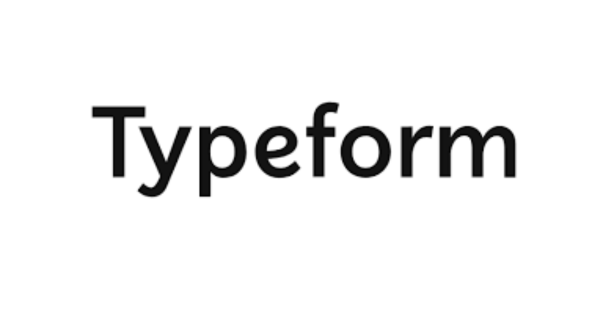- What is Affiliate Marketing and How Does It Work? - July 19, 2024
- Unlock Success in Business with Jessica’s Marketing Lectures - July 12, 2024
- What Does the 2,500-page Google Leak Means for SEO? - June 27, 2024
Surveys are a fundamental tool in market research because they provide businesses with valuable data and insights that inform strategic decisions. It plays a crucial role in market research for several reasons. They help companies understand their target audience, competitors, and market trends, leading to more effective product development, marketing strategies, and overall business success.
In this article, we will compare two popular survey tools to help you decide which one is right for your market research needs.
SurveyMonkey

SurveyMonkey is an online survey and research platform that empowers individuals and organizations to create, distribute, and analyze surveys and questionnaires. It provides a user-friendly and flexible platform for conducting various types of surveys, from customer feedback and market research to employee engagement and academic research.
Here are the key features and benefits of SurveyMonkey:
- Survey Creation: SurveyMonkey offers a simple and intuitive interface that allows users to create surveys with a wide range of question types, including multiple choice, open-ended, Likert scale, and more. Users can customize the appearance of surveys to match their brand, and there are pre-designed survey templates available for various purposes.
- Distribution Options: Surveys can be distributed through various channels, such as email, social media, websites, and even by embedding surveys in mobile apps. This flexibility makes it easy to reach a wide audience and gather responses quickly.
- Response Collection: SurveyMonkey provides tools to collect responses, including the ability to schedule surveys, set quotas, and control survey access. It also offers options for anonymous responses, which can be important for sensitive topics.
- Real-Time Reporting and Analysis: As responses come in, SurveyMonkey provides real-time reporting and analytics. Users can easily view and interpret the data with interactive charts and graphs, which can be helpful for making data-driven decisions.
- Integration: SurveyMonkey integrates with various third-party tools, including data analysis platforms, CRMs, and project management software. This allows users to streamline data collection and analysis as well as incorporate survey results into their existing workflows.
- Security and Data Privacy: SurveyMonkey takes data security and privacy seriously. They offer features like SSL encryption, HIPAA-compliant surveys, and EU General Data Protection Regulation (GDPR) compliance, making it suitable for collecting sensitive information while adhering to regulatory requirements.
- Collaboration: Survey creation and analysis can involve multiple team members. SurveyMonkey allows collaboration by enabling users to share surveys and reports with team members and collaborators.
- Pricing and Plans: SurveyMonkey offers both free and paid plans with varying features. The paid plans provide more advanced options such as unlimited questions, advanced reporting, and custom survey URLs.
- Educational and Nonprofit Discounts: SurveyMonkey offers discounted pricing for educational institutions and nonprofit organizations, making it accessible to a wide range of users.
Typeform

Typeform is a versatile online survey and form-building platform that offers a modern and interactive approach to data collection. It was founded in 2012 and has since gained popularity for its innovative and user-friendly design, making it an excellent choice for creating engaging surveys, forms, and questionnaires.
Here are the key features and benefits of Typeform:
- Interactive Surveys and Forms: Typeform is known for its visually appealing and interactive surveys and forms. Instead of the traditional static forms, Typeform presents questions one at a time in a conversational format. This engages respondents and provides a more user-friendly experience.
- Question Types: Typeform supports various question types, including multiple choice, open text, rating scales, and more. Users can create surveys that adapt dynamically based on the respondent’s previous answers.
- Customization: Typeform allows users to customize the look and feel of their forms and surveys. You can add images, videos, and customize fonts and colors to match your brand or design preferences.
- Logic and Branching: You can create conditional logic and branching in your surveys. This means that subsequent questions can change based on the answers provided earlier, creating a more personalized and relevant experience for respondents.
- Embedding and Integration: Typeform forms and surveys can be embedded on websites and integrated with various third-party applications, such as CRMs and marketing automation tools.
- User-Friendly Design: The platform is designed to be intuitive, making it easy for both creators and respondents. The drag-and-drop interface simplifies the form-building process.
- Real-Time Reporting and Analytics: Typeform provides real-time reporting and analytics, allowing users to track responses, analyze data, and generate reports quickly.
- Security and Data Privacy: Typeform takes data security and privacy seriously and offers features like SSL encryption and GDPR compliance to protect sensitive data.
- Collaboration: Users can collaborate with team members on survey creation, editing, and analysis. The same form can be worked on by multiple people at once.
- Free and Paid Plans: Typeform offers both free and paid plans with varying features. The paid plans provide additional customization options, advanced reporting, and integration capabilities.
Comparing SurveyMonkey and Typeform

Now that we have introduced both SurveyMonkey and Typeform, let’s dive deeper into the specific features they offer and compare them side by side:
- Survey Creation
SurveyMonkey offers a highly intuitive drag-and-drop interface, which makes it easy to create surveys without any coding knowledge. It provides a wide selection of pre-built survey templates, allowing you to get started quickly. Typeform, on the other hand, focuses on creating visually appealing surveys with a conversational approach. Its interface allows you to design surveys that feel more like an interactive conversation, resulting in higher response rates.
- Question Types
Both SurveyMonkey and Typeform offer a wide variety of question types to cater to different research needs. From multiple choice to matrix questions, you can find the right question type to gather the necessary insights. SurveyMonkey provides a comprehensive set of question types, including advanced options like heat maps and sliders. Typeform, on the other hand, emphasizes engaging question types such as image selection and smiley rating scales, making surveys more interactive.
- Customization Options
When it comes to customization, SurveyMonkey provides extensive options to tailor your surveys to your brand. You can change colors, fonts, and even add your company logo to create a consistent brand experience. Typeform also allows customization but with a more limited set of options. However, Typeform compensates for this with its visually appealing designs and interactive interface.
- Distribution Methods
SurveyMonkey and Typeform offer multiple ways to distribute your surveys. SurveyMonkey allows you to distribute surveys via email, social media, embedded links, or even through its mobile app. Typeform also offers similar distribution methods, along with the ability to share surveys on messaging platforms like WhatsApp and Slack. Both tools provide options to customize survey URLs and set privacy settings to control access.
- Analytical Tools
Both SurveyMonkey and Typeform come with powerful analytical tools to help you make sense of your survey data. SurveyMonkey provides robust reporting features, allowing you to generate charts, cross-tabulations, and statistical summaries. It also offers advanced analysis options, such as trend analysis and data segmentation. Typeform provides basic analytics within its platform, but for more advanced analysis, you may need to export the data to external tools.
Pros and Cons

Now that we have compared some key features of SurveyMonkey and Typeform, let’s summarize their pros and cons:
SurveyMonkey Pros
- Multiple customization options
- Advanced question types
- Robust analytical tools
- Extensive survey distribution methods
SurveyMonkey Cons
- Less visually appealing design compared to Typeform
- Steeper learning curve for beginners
Typeform Pros
- Stunning and interactive survey design
- Engaging question types
- Seamless integration with other tools
- User-friendly interface
Typeform Cons
- Limited customization options
- Basic analytics features
- Relatively new in the market
Conclusion
Choosing the right survey tool depends on your specific needs and preferences. If your marketing campaign require advanced customization options, robust analytical tools, and an extensive range of question types, SurveyMonkey might be the better choice. On the other hand, if you prioritize visually appealing and interactive survey designs, engaging question types, and easy integration with other tools, Typeform could be the ideal solution.
Ultimately, it is recommended to try out both tools using their free trial versions before making a decision. Remember, the success of your marketing efforts depends not only on the tool you choose but also on how effectively you design and distribute your surveys and analyze the collected data.
